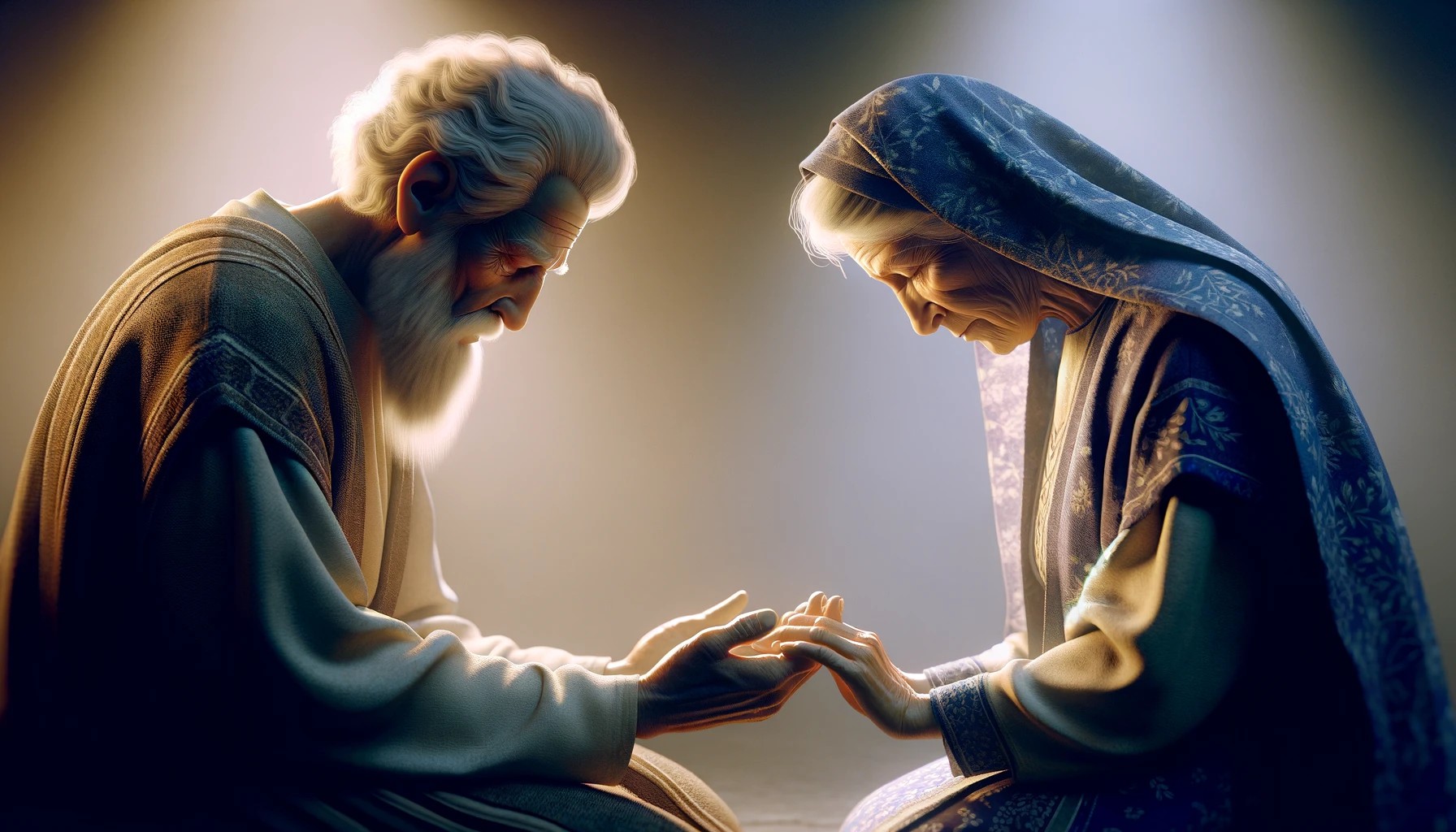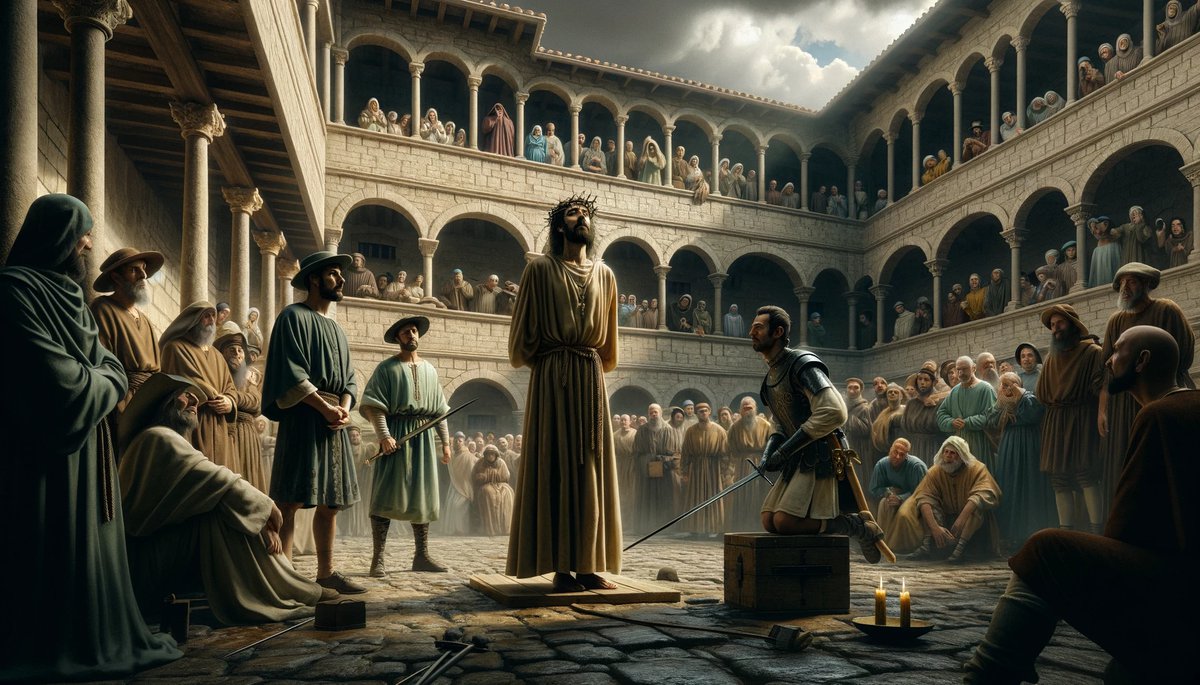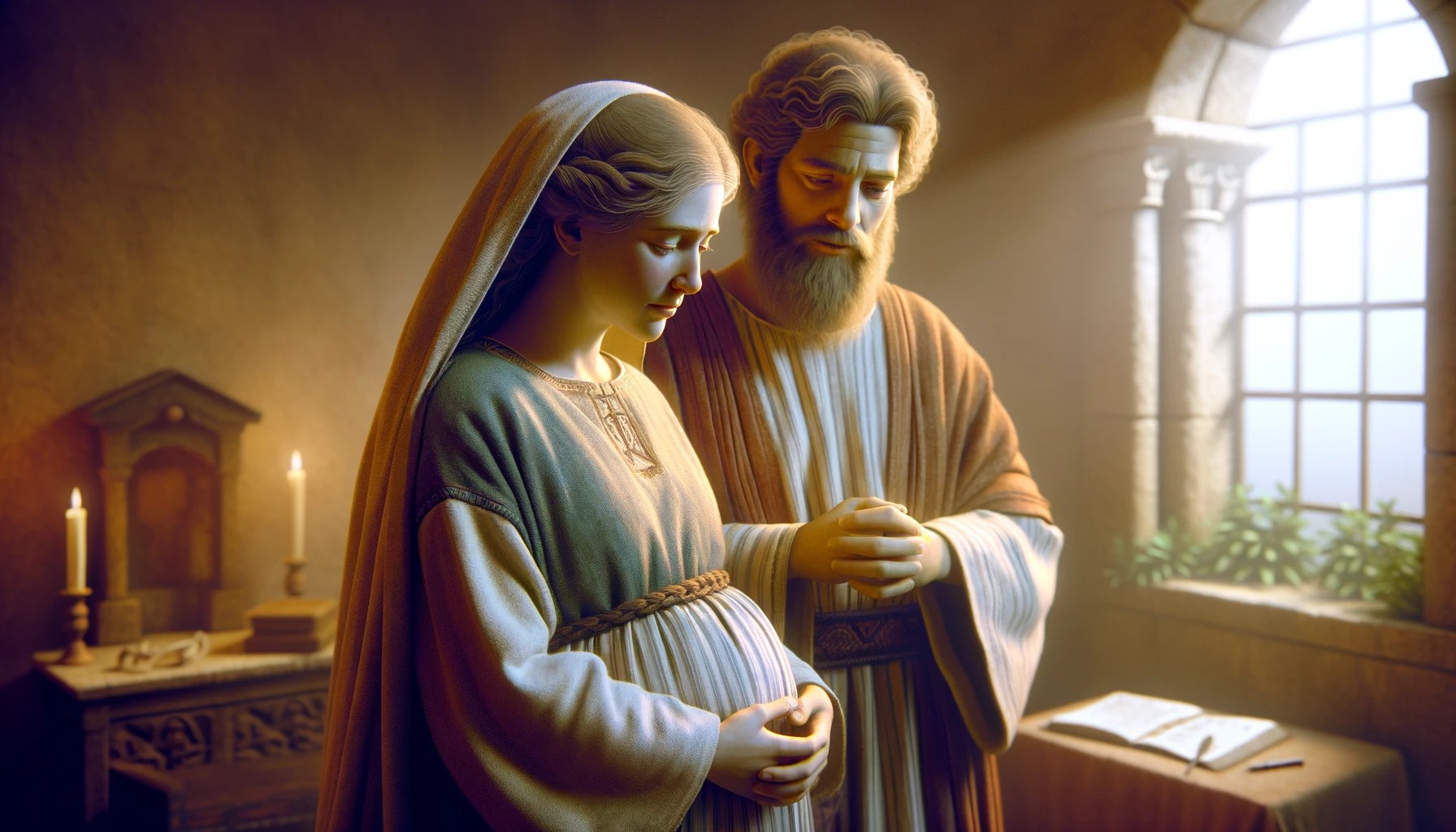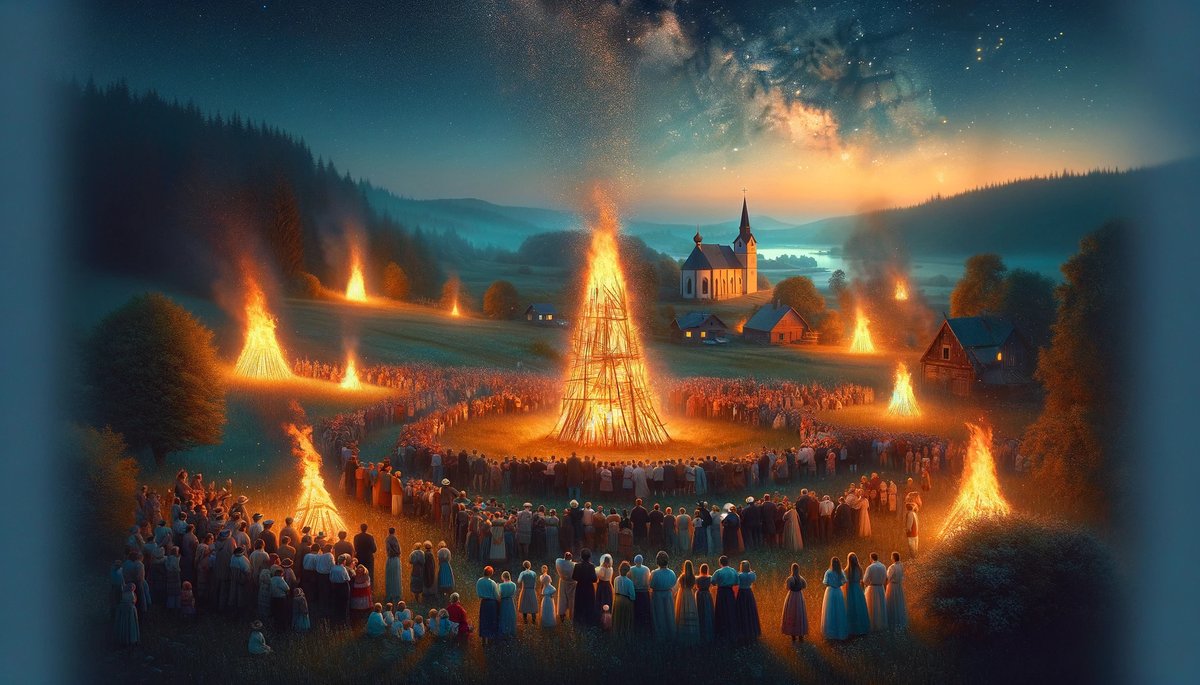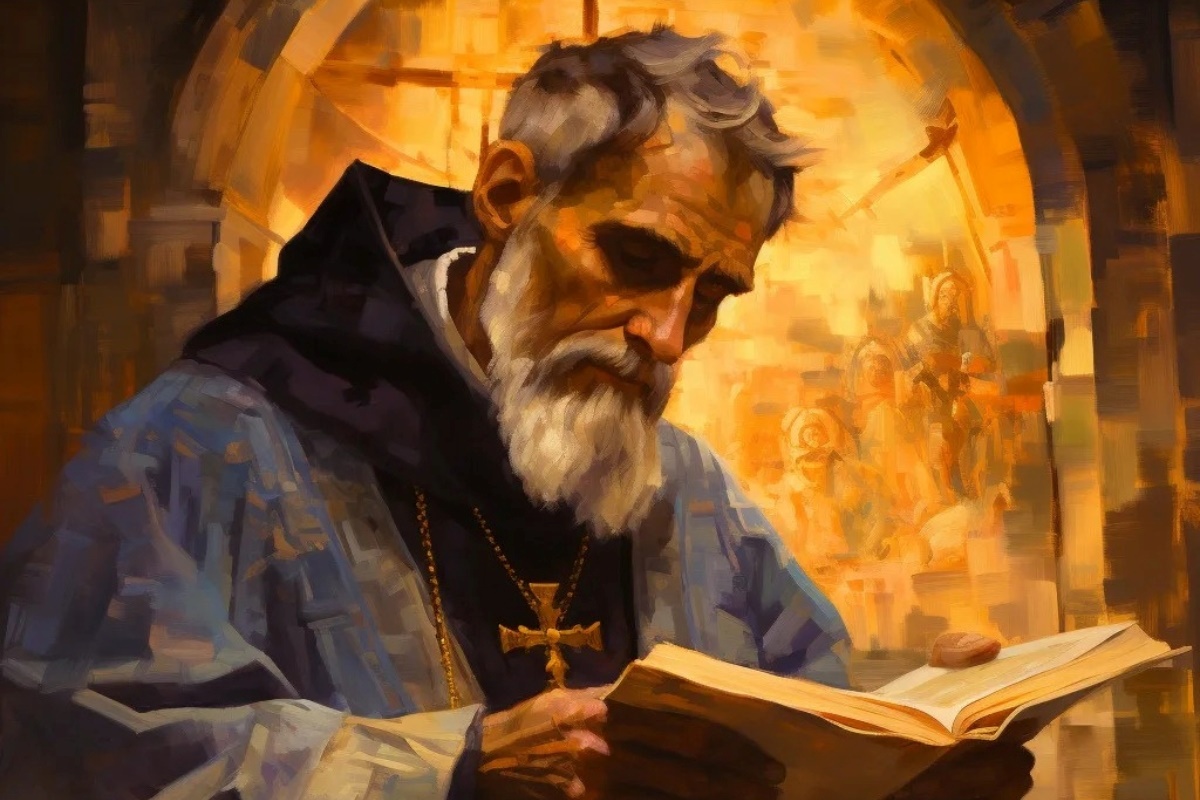Home>Theology and Spirituality>When Was St John The Baptist Born


Theology and Spirituality
When Was St John The Baptist Born
Published: February 20, 2024
Peter Smith, Editorial Director at Christian.net, combines deep insights into faith, politics, and culture to lead content creation that resonates widely. Awarded for his contributions to religious discourse, he previously headed a major organization for religious communicators, enhancing dialogue on faith's societal impacts.
Discover the birth date of St. John the Baptist and explore its significance in theology and spirituality. Uncover the historical and religious context of this important figure.
(Many of the links in this article redirect to a specific reviewed product. Your purchase of these products through affiliate links helps to generate commission for Christian.net, at no extra cost. Learn more)
Table of Contents
Introduction
The birth of St. John the Baptist is a significant event in Christian history, shrouded in spiritual significance and cultural traditions. As a pivotal figure in the New Testament, St. John the Baptist holds a revered place in the hearts of believers and has left an indelible mark on religious practices and observances. Exploring the circumstances surrounding his birth, the biblical accounts, and the cultural context provides a deeper understanding of the profound impact of this revered saint.
St. John the Baptist's birth is a testament to the fulfillment of divine prophecy and the miraculous workings of God. His arrival heralded a period of great anticipation and marked the transition between the Old Testament and the New Testament, as he prepared the way for the coming of Jesus Christ. Understanding the historical and cultural backdrop against which his birth unfolded offers valuable insights into the religious and societal dynamics of the time.
This article delves into the biblical narrative of St. John the Baptist's birth, shedding light on the spiritual significance and historical context that surround this momentous event. Additionally, it explores the enduring traditions and celebrations associated with the feast day of St. John the Baptist, providing a comprehensive overview of the enduring legacy of this revered saint.
The Birth of St John the Baptist According to the Bible
The birth of St. John the Baptist is a remarkable event chronicled in the Gospel of Luke, offering profound insights into the divine plan and the fulfillment of ancient prophecies. According to the biblical account, St. John the Baptist's parents, Zechariah and Elizabeth, were devout and righteous individuals who had longed for a child but were unable to conceive due to Elizabeth's barrenness.
The narrative unfolds with the extraordinary encounter between the angel Gabriel and Zechariah, who was serving as a priest in the temple. During this divine visitation, Gabriel delivered the astounding news that Elizabeth would conceive and bear a son, who would be named John. This revelation was met with disbelief by Zechariah, prompting the angel to render him mute until the prophecy came to pass.
True to the angel's words, Elizabeth conceived and joyously exclaimed, "The Lord has done this for me. In these days, he has shown his favor and taken away my disgrace among the people." The miraculous conception of John the Baptist, despite Elizabeth's advanced age, signified the divine intervention and the unfolding of God's redemptive plan.
The birth of John the Baptist was a cause for great celebration, as it signified the fulfillment of God's promise and the dawn of a new era. The naming of the child, in defiance of convention, as "John" further underscored the divine orchestration of his destiny. This momentous occasion was marked by profound joy and a sense of divine purpose, as evidenced by Zechariah's restoration of speech and his prophetic outpouring known as the Benedictus.
The biblical account of St. John the Baptist's birth serves as a testament to the miraculous workings of God and the pivotal role assigned to him in preparing the way for the Messiah. His arrival, foretold by the prophets, heralded a period of great anticipation and marked the beginning of a transformative chapter in the history of salvation.
The narrative of St. John the Baptist's birth, as depicted in the Bible, resonates with spiritual significance and serves as a testament to the faithfulness of God in fulfilling His promises. This extraordinary event laid the foundation for the profound impact that St. John the Baptist would have on the religious landscape, as he emerged as a herald of repentance and a precursor to the ministry of Jesus Christ.
Historical and Cultural Context of St John the Baptist's Birth
The birth of St. John the Baptist unfolded within a rich historical and cultural tapestry, deeply intertwined with the religious landscape and societal dynamics of ancient Judea. At the time of his birth, the region was under Roman occupation, and the Jewish people longed for deliverance from foreign rule. Against this backdrop of political unrest and spiritual yearning, the arrival of St. John the Baptist carried profound significance.
The cultural context of St. John the Baptist's birth is intricately linked to the religious traditions and beliefs of Judaism. His lineage can be traced to the priestly descent of his father, Zechariah, further emphasizing the sacred heritage from which he emerged. The naming of John, a departure from familial tradition, signified a divine intervention that transcended conventional norms, underscoring the extraordinary nature of his calling.
Moreover, the prophetic anticipation of a forerunner, as foretold in the Old Testament scriptures, infused the cultural milieu with a sense of expectancy and divine purpose. The prophecies of Isaiah and Malachi, among others, had kindled the hope of a herald who would prepare the way for the long-awaited Messiah. St. John the Baptist's birth, therefore, resonated with the echoes of ancient prophecies, serving as a tangible fulfillment of God's redemptive plan.
The historical context of St. John the Baptist's birth is also marked by the religious practices and rituals of the time. The priestly duties of Zechariah, his encounter with the angel Gabriel in the temple, and the subsequent fulfillment of the angelic prophecy all unfolded within the framework of Jewish religious life. These events underscored the seamless integration of divine intervention within the religious fabric of the community, reinforcing the sacred nature of St. John the Baptist's mission.
Furthermore, the socio-political climate of Judea, characterized by Roman hegemony and the fervent longing for liberation, contributed to the fervor surrounding the birth of St. John the Baptist. His emergence as a prophetic figure, destined to prepare the hearts of the people for the coming of the Messiah, resonated deeply with the collective aspirations for deliverance and spiritual renewal.
In essence, the historical and cultural context of St. John the Baptist's birth is imbued with layers of religious anticipation, divine intervention, and societal yearning. His arrival transcended the confines of a singular event, intertwining with the intricate tapestry of ancient Judea's religious and cultural landscape, and setting the stage for the transformative ministry that would unfold in the years to come.
The Feast Day of St John the Baptist
The Feast Day of St. John the Baptist, also known as the Nativity of St. John the Baptist, is a revered celebration in the Christian liturgical calendar. Observed on June 24th, this feast day holds profound significance and is marked by rich traditions, customs, and spiritual observances.
The timing of the feast day, closely aligned with the summer solstice, carries symbolic meaning, representing the waning of light following the longest day of the year. This symbolism is intricately linked to the words of St. John the Baptist himself, who proclaimed, "He must increase, but I must decrease," signifying the diminishing of his own prominence in light of the coming of Christ. The juxtaposition of the summer solstice and the feast day serves as a poignant reminder of St. John the Baptist's role as the herald of the Messiah.
The Feast Day of St. John the Baptist is celebrated with a blend of religious solemnity and cultural festivities. In many regions, particularly those with strong Christian traditions, the day is marked by special church services, processions, and the reading of passages from the Gospels that recount the life and ministry of St. John the Baptist. These observances serve to honor his pivotal role in preparing the way for Jesus Christ and emphasize the enduring impact of his message of repentance and spiritual renewal.
Cultural customs associated with the feast day vary across different regions. In some areas, bonfires are lit to symbolize the light of Christ and the spiritual illumination brought about by St. John the Baptist's ministry. Additionally, certain culinary traditions are observed, with specific foods and dishes being prepared to commemorate the occasion. These customs reflect the fusion of religious reverence and cultural heritage, underscoring the enduring influence of St. John the Baptist's legacy on diverse facets of life.
The Feast Day of St. John the Baptist serves as a poignant reminder of the timeless relevance of his message and mission. It invites believers to reflect on the themes of humility, preparation, and spiritual awakening embodied in the life of St. John the Baptist. Moreover, the feast day provides an opportunity for individuals to seek inspiration from his unwavering commitment to proclaiming the coming of the Messiah and to contemplate the enduring significance of his teachings in contemporary times.
In essence, the Feast Day of St. John the Baptist stands as a testament to the enduring impact of this revered saint and offers a moment of spiritual reflection and celebration within the Christian calendar. It serves as a poignant reminder of the timeless relevance of his message and mission, inviting believers to draw inspiration from his unwavering commitment to preparing the way for the Messiah.
Conclusion
The birth of St. John the Baptist, as depicted in the biblical narrative and contextualized within the historical and cultural milieu of ancient Judea, stands as a testament to the profound workings of divine providence and the fulfillment of ancient prophecies. His arrival, heralded by the angelic announcement to his father, Zechariah, and the miraculous conception by his mother, Elizabeth, marked the dawning of a new era in the history of salvation. The birth of St. John the Baptist was not merely a singular event but a transformative moment that reverberated with spiritual significance and cultural resonance.
The biblical account of St. John the Baptist's birth, chronicled in the Gospel of Luke, serves as a testament to the miraculous workings of God and the pivotal role assigned to him in preparing the way for the Messiah. His emergence as a prophetic figure, destined to herald a message of repentance and spiritual renewal, resonates with timeless themes of divine intervention and the fulfillment of God's redemptive plan. The historical and cultural context within which his birth unfolded further enriches the significance of this momentous event, intertwining religious anticipation, divine intervention, and societal yearning.
The Feast Day of St. John the Baptist, observed on June 24th, stands as a poignant commemoration of his enduring legacy and the timeless relevance of his message. This revered celebration, marked by a blend of religious solemnity and cultural traditions, serves as a reminder of St. John the Baptist's pivotal role in preparing the way for Jesus Christ. The symbolism associated with the feast day, particularly in relation to the summer solstice, underscores the profound theological themes encapsulated in the life and ministry of St. John the Baptist.
In conclusion, the birth of St. John the Baptist holds a revered place in Christian history, embodying the convergence of divine promise, prophetic fulfillment, and the enduring impact of a herald destined to prepare the hearts of the people for the coming of the Messiah. His life and mission continue to inspire believers across the globe, serving as a timeless testament to the transformative power of faith, the fulfillment of divine prophecies, and the enduring legacy of a saint whose birth heralded the dawn of a new era in the history of salvation.



